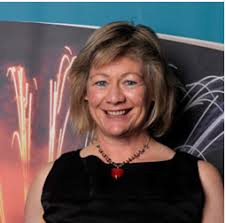Durham welcomes IAS Fellows from Otago!
Durham University has welcomed 2 Institute of Advanced Study Fellows from University of Otago as part of their world-famous IAS Fellowship scheme. The Institute aims to build research capacity, realise potential, and meet the challenges of a changing world by bringing together world leading scholars and practitioners from all disciplines to work with Durham colleagues on collaborative projects of major intellectual, scientific, political and practical significance.
Professor Janet Hoek, who holds a joint appointment in Public Health and Marketing and is the Co-Director of ASPIRE2025, and Professor Jing-Bao Nie, Associate Professor at the Bioethics Centre of the University of Otago, are part of 20 international academics awarded the chance this year to spend up to 3 months in Durham to establish a collaborative undertaking with a Durham academic and/or contribute to IAS-sponsored research projects. Professor Hoek said the following about her experience so far:
“If, two months ago, someone had told me I would have an office in a 1000-year old castle and would spend my time walking home by mulling over where on Mars space probes should land to examine possible signs of life, I would have dismissed the suggestion as highly unlikely. However, since being a Fellow at Durham University’s Institute of Advanced Study, I feel as though I enter a new world each morning as I climb the turret to my office! I’ve seen medieval manuscripts I once studied as a student, rediscovered the chemistry I learned last century when trying to understand the anti-microbial properties of clay, considered challenges 21st century mediation addresses and seen how important women’s voices are in meeting these challenges, reflected on gene editing, and gained insights into farmers’ well-being. The IAS has introduced me to ideas and questions I would never previously have considered, reinforced how valuable inter-disciplinary research is, and enabled me to meet people who I hope will become long-term collaborators.
What started as a rather random email exchange with a medical anthropologist – Professor Andrew Russell – has opened up new research questions and helped me consider quite different perspectives on these. As a Public Health researcher, I’m interested in reducing smoking prevalence and the health inequities caused by smoking. I’ve approached this goal by considering how policy measures can more effectively restrain the appeal, affordability and accessibility of tobacco. While at Durham, I’ve reflected on how spaces can be therapeutic, debated the materiality of objects such as cigarettes and vapes, and learned a little about how anthropologists explore tobacco in everyday life. Thanks to Andrew’s networks, I’ve had the opportunity to meet with several people working to deliver smokefree policies and interventions, and I’ve learned how we each navigate the familiar challenges of insufficient funding.
As well as having unexpected conversations every day, I’ve had the great privilege of living at Stephenson College (Stevo!) and getting to know staff and students there. The locomotion dinners have been a highlight, as too have the post-grad brunches on Sunday mornings; I’ve met some extremely talented young people and hope I’ve encouraged at least a few to spend time on exchange at the University of Otago.
I feel incredibly fortunate to have had this inspiring and stimulating experience, and I’m very grateful to the IAS and its directors, and to Stephenson College, for hosting me.”
You can find out more about the Durham IAS Fellowship scheme here.

